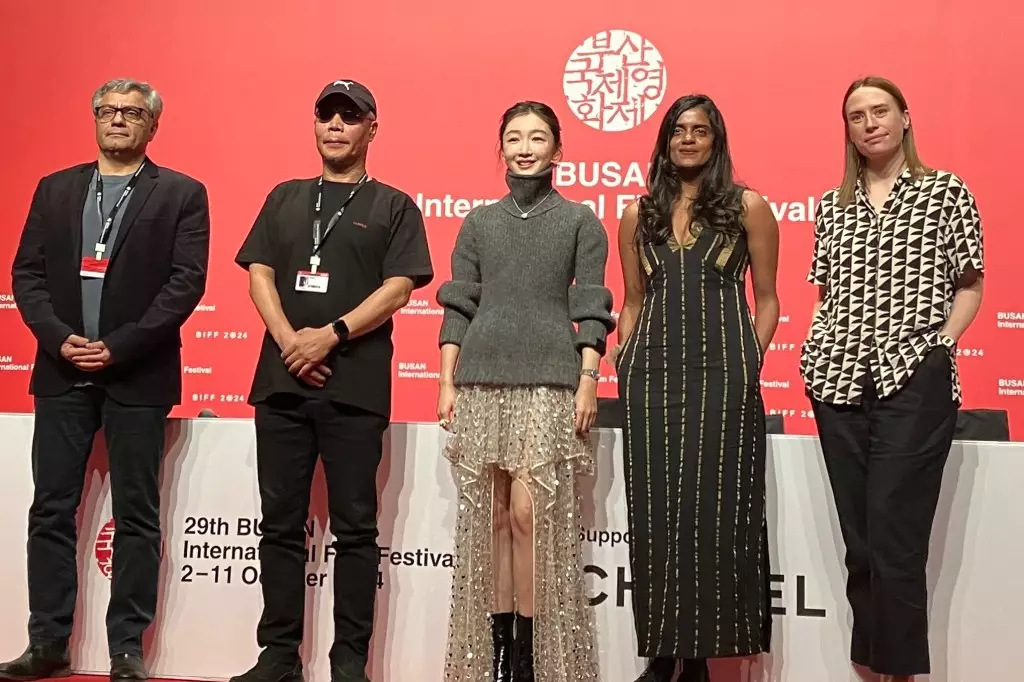The Busan International Film Festival (BIFF) has long been a platform for filmmakers from across Asia to present their unique stories against the backdrop of rich cultural narratives and complex socio-political realities. This year, the spotlight has turned towards Mohammad Rasoulof, the jury president of the New Currents section, whose own journey reflects both the challenges and resilience of artists navigating through oppressive regimes. Rasoulof’s latest film, *The Seed Of The Sacred Fig*, represents not only a significant artistic achievement but also a profound statement about censorship in Iran, resonating with filmmakers globally.
Rasoulof’s film was chosen by Germany as its submission for the Best International Feature category at the Oscars. This notable selection carries immense symbolic weight, especially considering the Iranian government’s history of suppressing creative expression. For Rasoulof, who faced prison time for producing the film without official permission, Germany’s recognition underscores a critical narrative: international support can transcend borders, providing a lifeline for artistic voices stifled by authoritarian regimes. He spoke on this topic at a press conference in Busan, emphasizing the importance of solidarity among filmmakers and the hope this selection brings to others working under similarly repressive conditions.
“It has great meaning as it shows they are opening their arms and understanding other cultures and human expression,” Rasoulof remarked, reinforcing the idea that film can serve as a bridge between diverse societies and foster a greater understanding of human experiences.
The challenges within the cinema landscape are not limited to Iran or countries with overt censorship; they reflect a broader sentiment experienced in various global contexts. Lee Myung Se, a prominent Korean director and fellow jury member, noted that the Korean film industry is grappling with internal crises exacerbated by post-pandemic realities. While the pandemic significantly altered consumption patterns, it also hampered production and creativity within the industry. Lee’s pursuit of authentic storytelling highlights the necessity for directors to embrace their craft fully, striving for narratives that exhibit depth and artistic merit rather than mere market-driven formulas.
This notion speaks to the global audience’s growing expectation for meaningful storytelling. As the boundaries of cinema expand, filmmakers are tasked with capturing not only the zeitgeist of their societies but also engaging in introspective storytelling that challenges viewers to reflect deeply on the human condition.
Zhou Dongyu, another jury member, drew a parallel between the political relations of China and South Korea and the evolution of cultural exchanges between nations. She expressed a hopeful outlook for future collaborations and collaborations, underscoring the potential of cinematic endeavors to foster reconciliation and mutual understanding. The upcoming year (2025) is posited as a pivotal opportunity for cultural dialogue, which may further enhance cinematic relations between these historically tense neighbors.
The importance of cultural exchange cannot be overstated, particularly in an era where films serve as both entertainment and a conduit for cross-cultural dialogue.
Indian cinema has increasingly captured global attention, reflecting a diverse array of styles and genres. Kani Kusruti discussed the evolving state of Indian films during the press conference, highlighting the thriving environment for both commercial and independent cinema in her home state of Kerala. Her insights underscore the idea that from diversity springs innovation and creativity, illuminating new cinematic voices and vibrant storytelling techniques fueled by a dedicated film culture.
As Kusruti pointed out, “Indian cinema is going through a very good time now,” reflecting a potential renaissance that revels in various narratives that transcend well-trodden tropes. The recent recognition of Indian films at international festivals further cements this trajectory, showcasing unique perspectives and diverse experiences that enrich global cinema.
The New Currents competition at BIFF exemplifies a commitment to nurturing emerging talent in Asian cinema. This year’s event not only emphasizes first and second features from up-and-coming directors but also reinforces the festival’s role in providing a platform for voices that might otherwise go unheard. The cash prizes totaling $60,000 awarded to the winning directors serve as an affirmation of the festival’s dedication to fostering new talent amidst an ever-evolving cinematic landscape.
The Busan International Film Festival serves as a poignant reminder of the power of film as a medium for change, understanding, and cultural exchange. Rasoulof’s *The Seed Of The Sacred Fig* stands as a beacon of hope, pushing boundaries and igniting conversations about the role of artistic expression in the face of adversity. By bringing together diverse voices from various countries, BIFF enriches the global dialogue on cinema and the shared human experience, offering not only entertainment but also insightful reflections on our collective conditioning.
